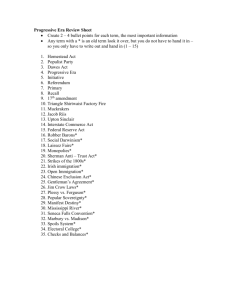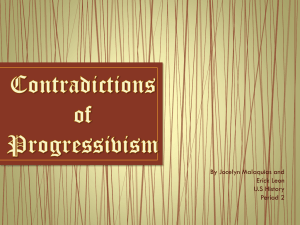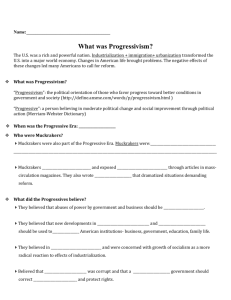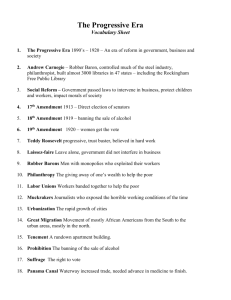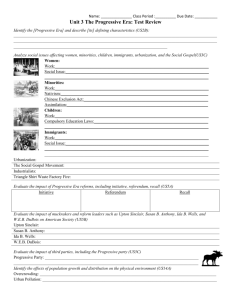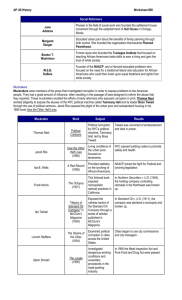AP US History
advertisement
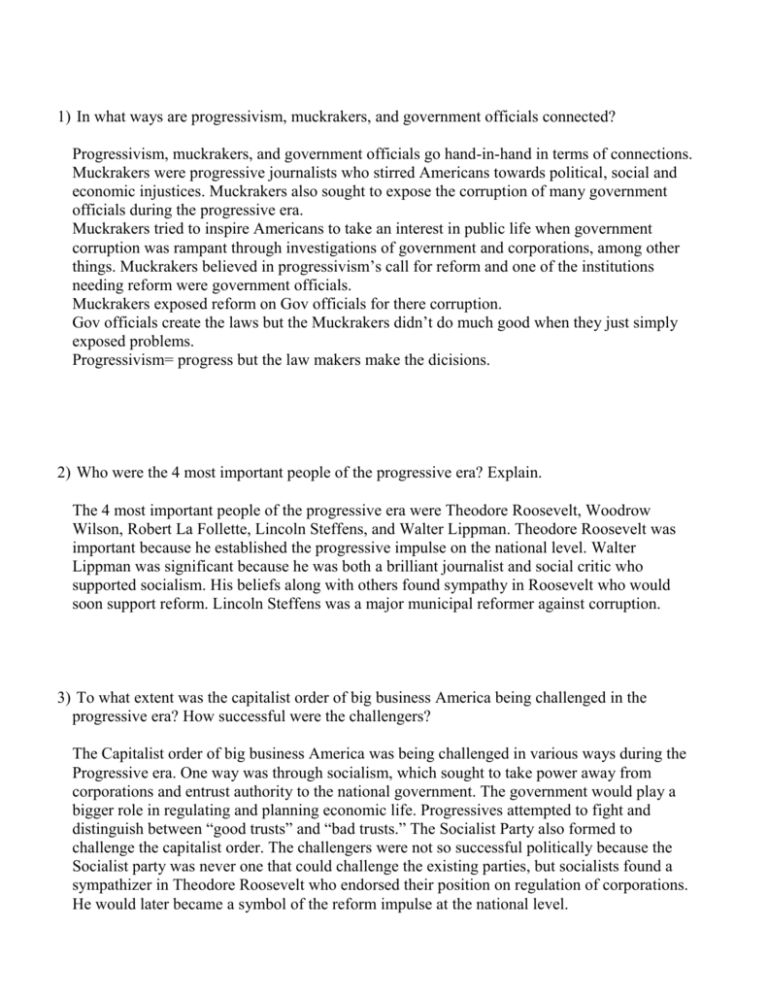
1) In what ways are progressivism, muckrakers, and government officials connected? Progressivism, muckrakers, and government officials go hand-in-hand in terms of connections. Muckrakers were progressive journalists who stirred Americans towards political, social and economic injustices. Muckrakers also sought to expose the corruption of many government officials during the progressive era. Muckrakers tried to inspire Americans to take an interest in public life when government corruption was rampant through investigations of government and corporations, among other things. Muckrakers believed in progressivism’s call for reform and one of the institutions needing reform were government officials. Muckrakers exposed reform on Gov officials for there corruption. Gov officials create the laws but the Muckrakers didn’t do much good when they just simply exposed problems. Progressivism= progress but the law makers make the dicisions. 2) Who were the 4 most important people of the progressive era? Explain. The 4 most important people of the progressive era were Theodore Roosevelt, Woodrow Wilson, Robert La Follette, Lincoln Steffens, and Walter Lippman. Theodore Roosevelt was important because he established the progressive impulse on the national level. Walter Lippman was significant because he was both a brilliant journalist and social critic who supported socialism. His beliefs along with others found sympathy in Roosevelt who would soon support reform. Lincoln Steffens was a major municipal reformer against corruption. 3) To what extent was the capitalist order of big business America being challenged in the progressive era? How successful were the challengers? The Capitalist order of big business America was being challenged in various ways during the Progressive era. One way was through socialism, which sought to take power away from corporations and entrust authority to the national government. The government would play a bigger role in regulating and planning economic life. Progressives attempted to fight and distinguish between “good trusts” and “bad trusts.” The Socialist Party also formed to challenge the capitalist order. The challengers were not so successful politically because the Socialist party was never one that could challenge the existing parties, but socialists found a sympathizer in Theodore Roosevelt who endorsed their position on regulation of corporations. He would later became a symbol of the reform impulse at the national level. Acts laws that we not affective and enforced. Successful in shutting down and breaking up monopolies somewhat. To a moderate extent... The power of business owners over employees. Concentration of power.. where a lot of power lies on a business or leader. MONOPOLIES! Anti-trust laws to keep democracy and to keep the idea of opportunity for small bussinesses. 4) Who were the winners and losers of the progressive era? Explain. The winners of the progressive era were workers, laborers, women, immigrants and citizens who desired a more efficient government and a government that wasn’t as corrupt. The Party bosses and the political machines were the losers thanks to such tactics as the referendum, the direct election, the initiative and the recall. African Americans were also losers because they didn’t really create many reforms other than forming the NAACP on W.E.B. Du Bois philosophy of ensuring the elite blacks reach their potential. The creation of the Hull houses aided immigrants in learning more about the U.S. and women made gains with the 18th amendment, which gave them the right to vote.
